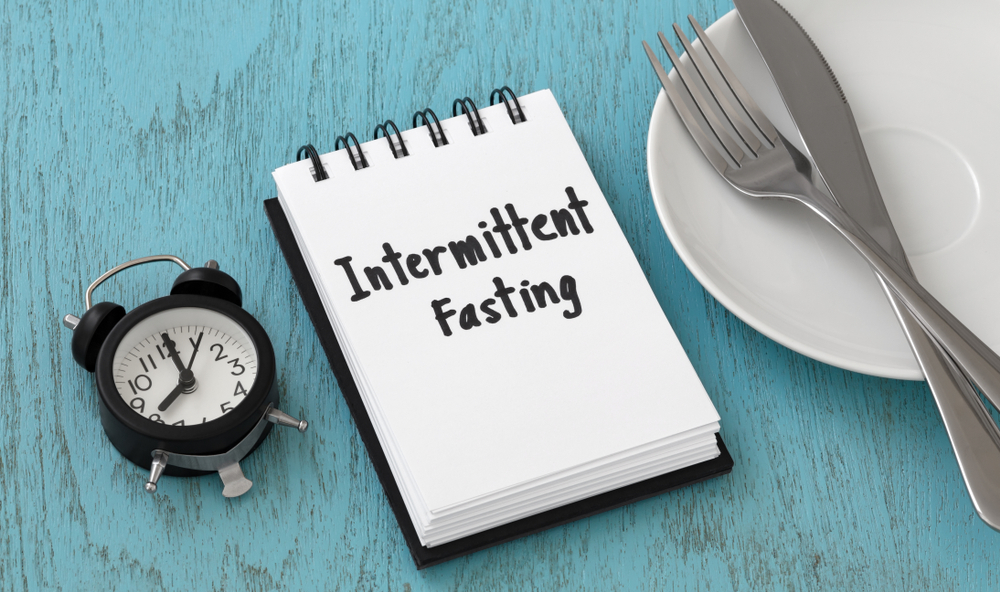Intermittent
Book an
Many people only associate fasting with losing weight or observing a religious occasion. Fasting, however, has the potential to boost overall health, aiding not only in weight loss but in improving cardiovascular health and helping control blood pressure and blood sugar. At Swetech Family Medicine, we will review your entire health and determine whether intermittent fasting is the right plan to help you achieve optimum wellness.


Types of Intermittent
Fasting doesn’t mean starvation or restrictions. It doesn’t mean depriving yourself of the foods and drinks you love. Intermittent fasting is a way to alter not what you eat, but when you eat it.
The basic premise of intermittent fasting is alternating between short periods of fasting and periods of normal eating without restrictions. Sometimes the fasting involves no food at all, sometimes it is a significant reduction in calories.
There are three main ways to practice intermittent fasting:
- Alternate-day fasting: Fast one day, no food restrictions the next day. On the fasting day, a low number of calories are permitted, typically 500 for women and 600 for men, which equals one small meal or two very small meals.
- Time-restricted fasting: Eat during a compressed eight to 12-hour daytime window, fast during the remainder of the day. Also known as the 16/8 method.
- 5:2 whole-day fasting: Fast for two days of the week, no food restrictions the other five days. On the fasting day, a low number of calories are permitted, typically 500 for women and 600 for men, which equals one small meal or two very small meals.
There are variations on the theme, of course. If fasting is something you want to try and one of these more extreme measures would not be healthy for you, alternative methods may be a viable option, like skipping a meal occasionally. You and your doctor can discuss what’s possible.
Benefits of Intermittent
Intermittent fasting has been shown to be a positive but mild stressor on the body, like exercise, encouraging cells to be more adaptable and stronger. Intermittent fasting can deliver many health benefits, including:
- Better digestive health: Patients with digestive problems like irritable bowel syndrome and Crohn’s disease can benefit from intermittent fasting because their digestive system gets an opportunity to rest and recover, reducing the side effects of their inflammatory gut conditions.
- Mental clarity: From easing depression to supporting brain health and memory, fasting has proven itself as a boon to mental health not just physical health. Intermittent fasting has shown itself to slow brain aging and improve degenerative brain disorders like Alzheimer’s disease.
- Weight loss: Fasting helps reduce the inflammation that makes you feel hungry all the time. When you eat less, over time you train yourself to feel full, decrease hunger pangs, and encourage weight loss.
- Stabilized blood sugar: A lot of eating and a lot of carbs has our bodies full of glucose. Fasting can reduce the risk of diabetes by lowering insulin resistance and increasing metabolism. The body gets a chance to recover from all that’s being put into it and insulin sensitivity is significantly improved.
- Improved heart health: Instead of using glucose for fuel, the body learns to use fat, a cleaner energy source that lowers triglyceride levels, improves blood pressure, reduces LDL cholesterol, and increases HDL cholesterol.


Is Intermittent Fasting
Right for
Fasting has been shown to reduce inflammation, improve energy, reduce appetite, reduce the risk of cancer, and improve the symptoms suffered by patients with autoimmune conditions like lupus and multiple sclerosis.
One key to success, of course, is to maintain a healthy diet on the days that you’re not fasting. Binging on junk food to make up for the deprivation on your fasting days isn’t going to help your waistline or improve your health. For the benefits to be real, the effort must be twofold.
Dietary restrictions and fasting are not right for every patient. You should always discuss your intentions to start an intermittent fasting regimen with your doctor before embarking on this effort, especially if you have high or low blood pressure, diabetes, hormone problems, a history of eating disorders, take medication, or are pregnant or trying to conceive.
Intermittent fasting can help heal and reset the body – if you do it under the supervision of your doctor. This is not a lifestyle, it’s a short-term treatment. Contact Swetech Medical Center in Clinton Township to schedule your appointment and learn more about whether fasting is right for you.